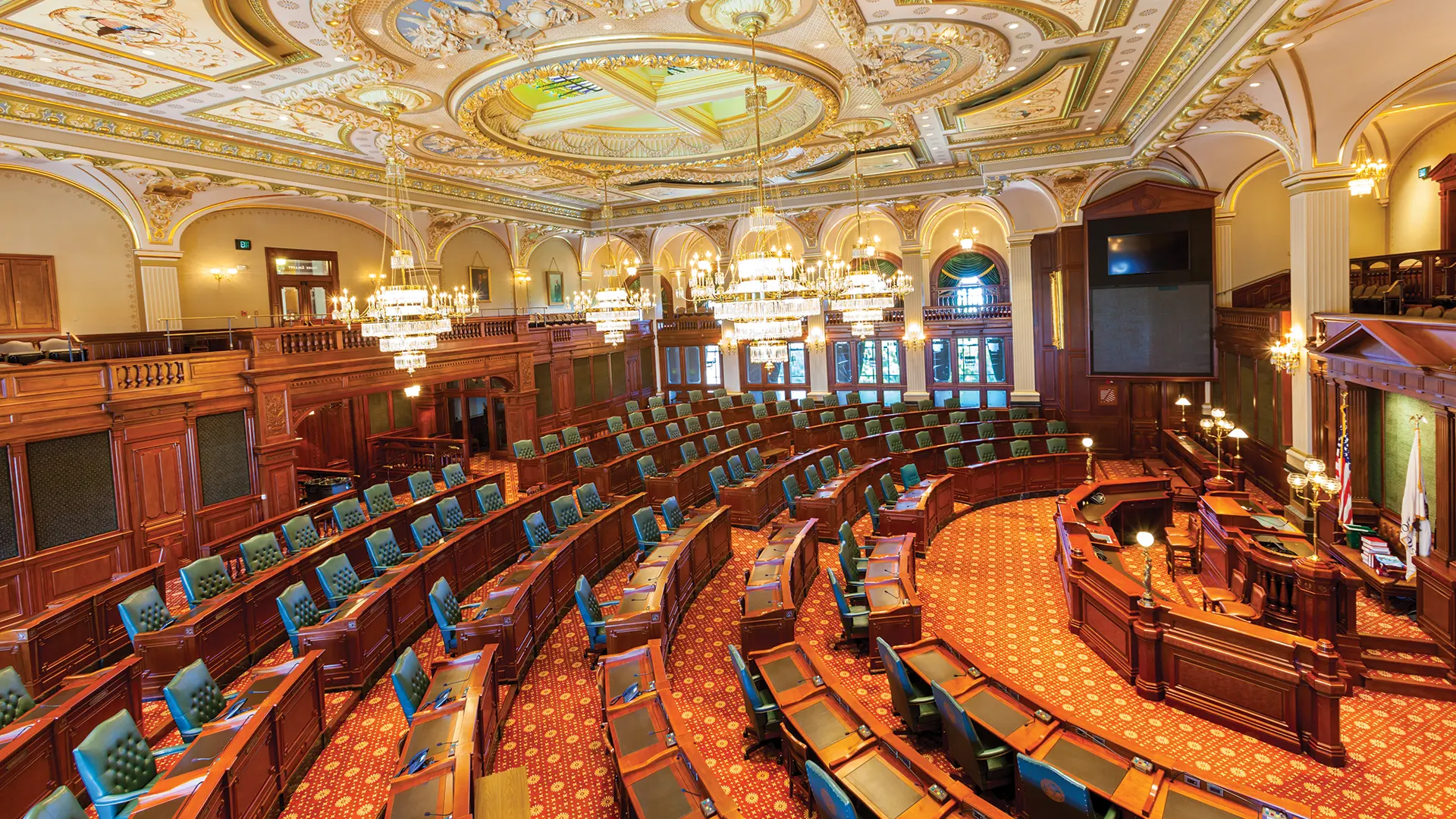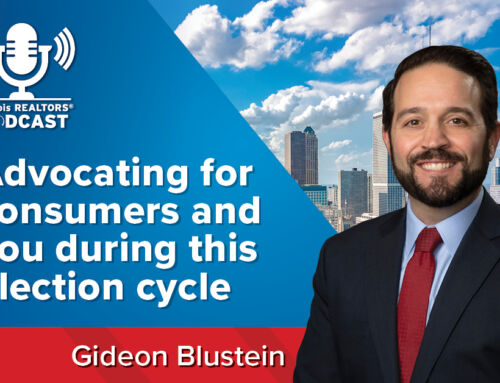The Illinois legislative process is inherently unpredictable, but this year there are a number of new variables that will impact the outcome of the 2022 spring session in Springfield.
Your Illinois REALTORS® statehouse lobbying team is adept at adapting and modifying our strategies and tactics to advance the REALTOR® agenda and to stop or fix ideas that would be bad for the real estate industry and housing market. We are also enhancing our grassroots advocacy to ensure the REALTOR® voice is heard loud and clear, no matter what political and legislative landscape we face.
Let’s run through these major “variables” and how they may impact policy and lawmaking this spring in order to provide insight on what’s going on and what to expect.
It’s a redistricting year, so every seat is up for election, and many are running in new territories
Similar to other states, the Illinois Constitution provides for the “remapping” of the state’s legislative and congressional districts following the decennial census. As such, ALL of the state’s 59 Senate and 118 House Districts will be up for election in 2022 with newly drawn boundaries.
Some incumbent legislators will see little change in their districts, and some (mostly Democrats, who were in charge of redrawing the map as they have majority control the legislative process) will be running in districts that enhance their partisan advantage.
But some legislators on both sides of the aisle will be running in districts that contain upwards of 40 percent new territory where they will have to campaign and raise their visibility. It’s a time-consuming and expensive task. A few unlucky (or targeted) incumbents (mostly Republicans) were drawn into districts with a fellow incumbent, or whose current home is in a wholly new legislative district.
What does this mean for the process?
Some incumbents are choosing not to run again, thus creating an “open seat” contest in 2022. Some will resign before the election and let the open seat candidate of their party run as incumbents. Others will assume “lame duck” status, leaving them much less inhibited in their voting since they are not standing for reelection. These realities add some volatility to the process, but also present some interesting opportunities for those as familiar with the process as your lobbying team.
The redistricting dynamic also opens up new grassroots opportunities. Illinois REALTORS® is exploring a program to fund REALTOR®-Candidate “Meet & Greets” for our legislative allies who have new populations of voters they need to reach out to and get to know. Stay tuned!
Primary election change causes major shift in legislative calendar
Due to delays finalizing the decennial census numbers, the remapping calendar was pushed back so far that having the 2022 primary election in March became impossible. Legislation was passed to change the Illinois primary date to June 28, 2022, and this turned the usual flow of the spring session legislative calendar on its head.
Normally, in election years, the legislature would convene in January to get the process going, but the real heavy lifting of the legislative session would take place in April and May, with the legislature adjourning at the end of May.
A June 28 primary necessitated substantial revisions to the legislative calendar. The General Assembly convened in January, but began its work in earnest much earlier, with a scheduled adjournment date of April 8, 2022!
The schedule sets the key deadlines for getting bills out of the chamber of origin at Feb. 25 in the Senate and March 8 in the House. The weeks leading up to those deadlines will be busy…likely much more so than usual!
But your lobbying team is already working with staff and legislators on key issues, and we’ll be ready to stand as your advocates on issues when the bell rings!
Legislators want to hear from you! Plan on attending the 2022 Illinois REALTORS® Capitol Conference “REALTOR® Lobby Day” on Tuesday, March 29 in Springfield.
Omicron variant likely to limit or eliminate Capitol access
Of course, the massive spread of the Omicron variant of COVID-19 has resulted in renewed concern about large, public gatherings. This is likely to substantially restrict in-person lobbying and curtail large groups descending on the Capitol from throughout the state. It is likely that many, or most, legislative hearings will take place virtually and meetings with legislators will be by Zoom or phone.
Your statehouse lobbying team is prepared to maximize our input on key legislative matters no matter what the environment. REALTORS® are at a competitive advantage because we have an amicable relationship with almost every legislator, and our local members have some kind of relationship with almost every lawmaker back home. Few groups can say this!
Because of our reputation as a knowledgeable, trusted and reasonable resource, legislators are reluctant to act on ANY issue affecting real estate or homeowners without hearing from the REALTORS® first. They want and need our input, and they know that we would never betray their trust. They will not only accept and return our calls, but legislators and their staff will pro-actively reach out to us for input before they act.
A 2022 ‘crystal ball’ outlook of the session
While the legislative process presents challenges, we also see new opportunities to pursue the REALTOR® agenda. Here are some of our priorities this spring:
Our corollary message is that the legislature should build on what we succeeded in passing in 2021 with the omnibus housing bill, which aimed at reducing regulatory barriers to constructing and maintaining affordable housing and invested in programs that will leverage the construction of more housing.
Most legislators were very receptive to this kind of approach, in lieu of destructive and counter-productive policies like Rent Control or forcing landlords to participate in certain federal rental housing assistance programs.
One major sub-topic in this area will be discussing how much of the remaining American Rescue Plan dollars allocated to Illinois will be earmarked for the housing sector, and what specifically will it fund. It is estimated that at least $5 billion has yet to be allocated or spent, and we have informally been suggesting that $1 billion go towards housing…but of course, there is a great deal of competition for these monies.
We simply must keep moving the ball forward on this front!



















